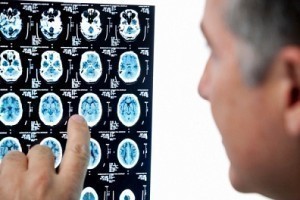Symptoms of Stress
Everyone always encounter symptoms of stress some time in their life. It is because stress is one factor that comes along with the demand of daily living and performing daily responsibilities. However there is something good when one begins to experience the symptoms of stress. It alerts the body to take a time off and rest. Stress is meant to provide the body a reminder when it is subject to extreme conditions.
The common symptoms of stress are one triggered by the body’s natural autonomic response due to the presence of an imbalanced body system functions. The body’s response to stress protects the body from extreme fatigue and system shut down. On the other end it also prepares the body to be energetic and the mind to be focused and alert. Stress only poses as a problem when it becomes chronic and beyond one’s tolerance level.
Signs of Stress
Early symptoms of stress may vary from each person as typically determined by their stress tolerance level. Minor stress is manageable by rest to help rejuvenate the body under pressure. Relatively, major stress can lower the body’s immune system that makes one highly vulnerable to other illnesses.
It is vital to recognize the symptoms of stress and to determine whether it is beyond your control or tolerance level. Overload symptoms of stress will typically involve cognitive, emotional, behavioral and physical signs that serve as warnings that the body needs a break from a stressful condition.
Common signs of stress include anxiousness, poor judgment, memory difficulty, constant worrying, pains, dizziness, depression, eating problems, agitation, moodiness, irritability and impatience. These symptoms of stress can result to strained relationships with others and inability to function well in meeting responsibilities and in decision making. Stress can also drive one to resort to unhealthy habits of drinking alcohols and smoking.
Stress Diagnosis
The diagnosis for symptoms of stress in the early stage and minor stress cases are relatively easy. Oftentimes the symptoms of stress are highly recognizable. They are in fact common in our everyday lives that we often attribute tiredness as a basic symptom of stress that reminds us to take a rest.
However chronic stress often involves other major stressors that require immediate diagnosis and treatment. Because stress is the end result of complex disorders be it psychological, emotional, and physiological conditions, it warrants that proper diagnosis of the cause that result to stress must be included. The proper diagnosis of the standing condition that causes the symptoms of stress to occur is as important when defining the treatment of symptoms of stress.
Stress Treatment
The most basic prevention from experiencing the symptoms of stress is to avoid situations that are stressful and likely to put pressure on you. Stress management can be carried out as a self treatment option by starting to find the stressor. It is important to relieve oneself from the stressor in order to allow the body and mind to relax.
For major stress, medical treatments are available in order to help overcome the unpleasant symptoms of stress. Oftentimes, biofeedback, relaxation techniques, regular exercise program and counseling are common forms of treatment. Once chronic stress is accompanied with other medical condition, pharmacological management is opted.
For more information on Symptoms Of Stress read:







